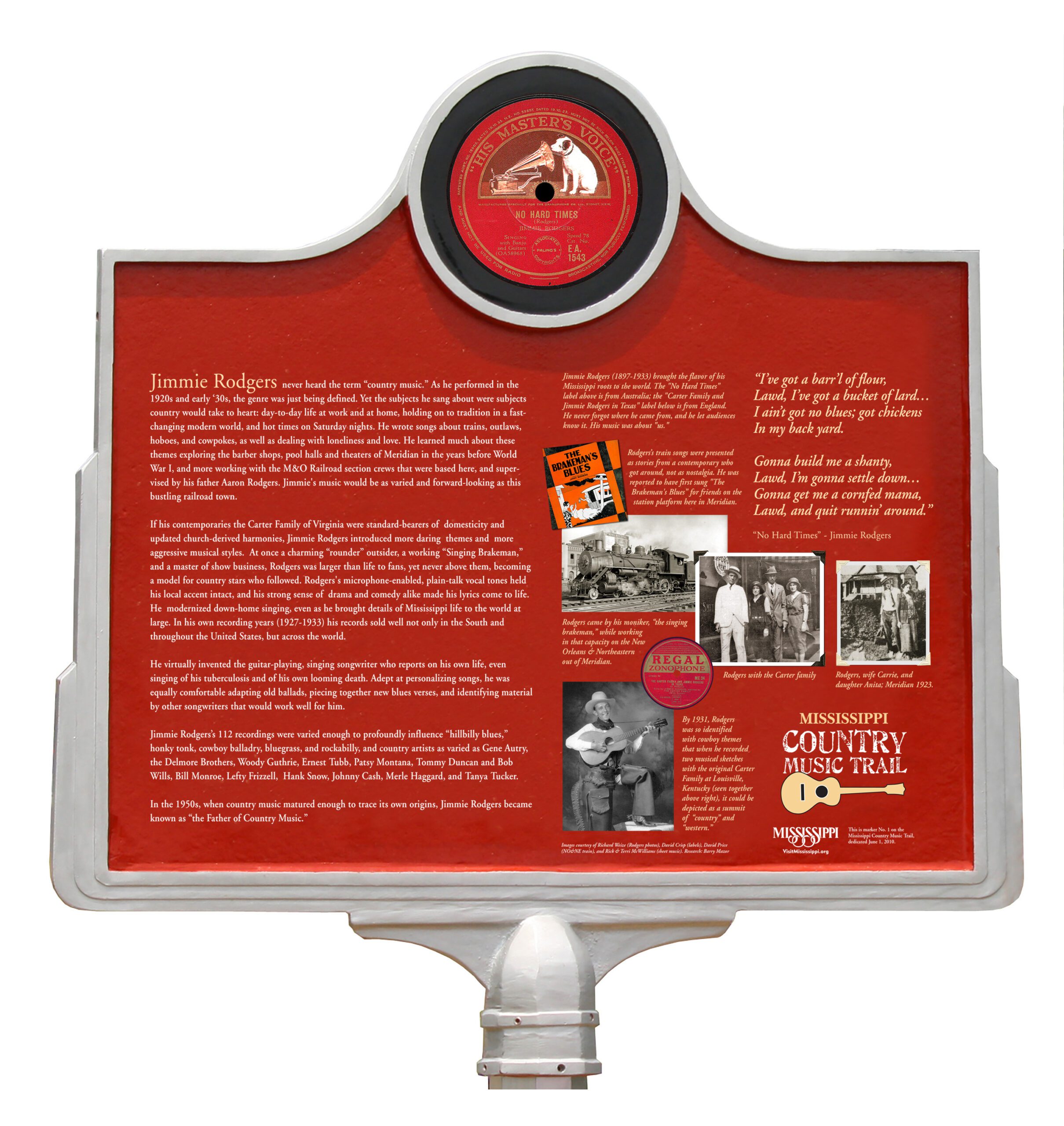Jimmie Rodgers

Singing winningly, with storytelling clarity and physicality, of the real lives and fondest dreams of his down home audience, with varied musical backing that ranged from his own solitary guitar to rural pickers, horns, and Hawaiian bands, in just five years as a star before his early death in 1933, Jimmie Rodgers placed a defining stamp on what country music would be. Nashville’s Country Music Hall of Fame simply calls Meridian’s Singing Brakeman “The Man Who Started It All.”
Jimmie Rodgers never heard the term “country music.” As he performed in the 1920s and early ‘30s, the genre was just being defined. Yet the subjects he sang about were subjects country would take to heart: day-to-day life at work and at home, holding on to tradition in a fast-changing modern world, and hot times on Saturday nights. He wrote songs about trains, outlaws, hoboes, and cowpokes, as well as dealing with loneliness and love. He learned much about these themes exploring the barber shops, pool halls and theaters of Meridian in the years before World War I, and more working with the M&O Railroad section crews that were based here, and supervised by his father Aaron Rodgers. Jimmie’s music would be as varied and forward-looking as this bustling railroad town.
If his contemporaries the Carter Family of Virginia were standard-bearers of domesticity and updated church-derived harmonies, Jimmie Rodgers introduced more daring themes and more aggressive musical styles. At once a charming “rounder” outsider, a working “Singing Brakeman,” and a master of show business, Rodgers was larger than life to fans, yet never above them, becoming a model for country stars who followed. Rodgers’s microphone-enabled, plain-talk vocal tones held his local accent intact, and his strong sense of drama and comedy alike made his lyrics come to life. He modernized down-home singing, even as he brought details of Mississippi life to the world at large. In his own recording years (1927-1933) his records sold well not only in the South and throughout the United States, but across the world.
He virtually invented the guitar-playing, singing songwriter who reports on his own life, even singing of his tuberculosis and of his own looming death. Adept at personalizing songs, he was equally comfortable adapting old ballads, piecing together new blues verses, and identifying material by other songwriters that would work well for him.
Jimmie Rodgers’s 112 recordings were varied enough to profoundly influence “hillbilly blues,” honky tonk, cowboy balladry, bluegrass, and rockabilly, and country artists as varied as Gene Autry, the Delmore Brothers, Woody Guthrie, Ernest Tubb, Patsy Montana, Tommy Duncan and Bob Wills, Bill Monroe, Lefty Frizzell, Hank Snow, Johnny Cash, Merle Haggard, and Tanya Tucker.
In the 1950s, when country music matured enough to trace its own origins, Jimmie Rodgers became known as “the Father of Country Music.”
Images courtesy of Richard Weize (Rodgers photos), David Crisp (labels), David Price (NO&NE train), and Rick and Terri McWilliams (sheet music). Research: Barry Mazor.
